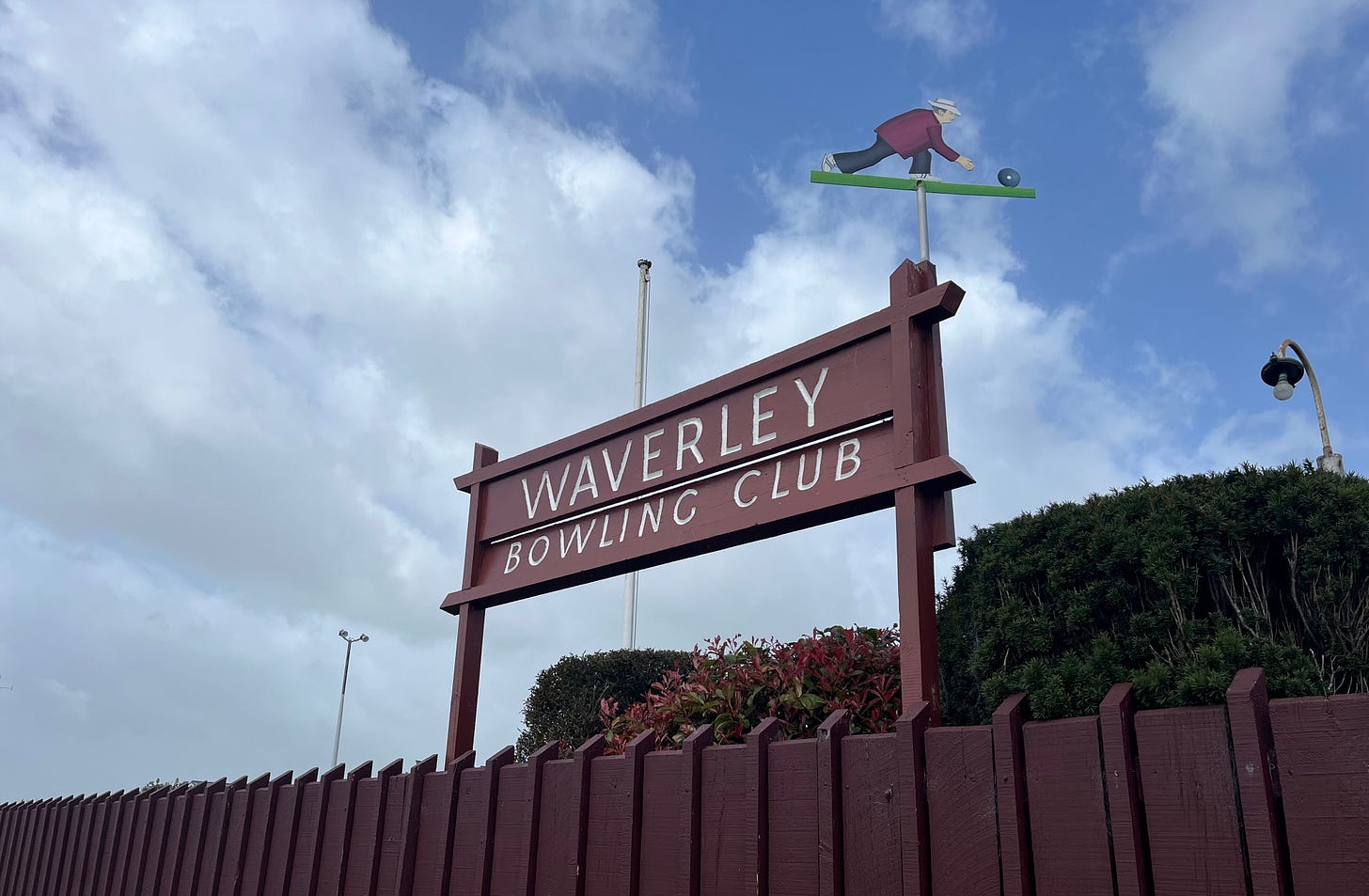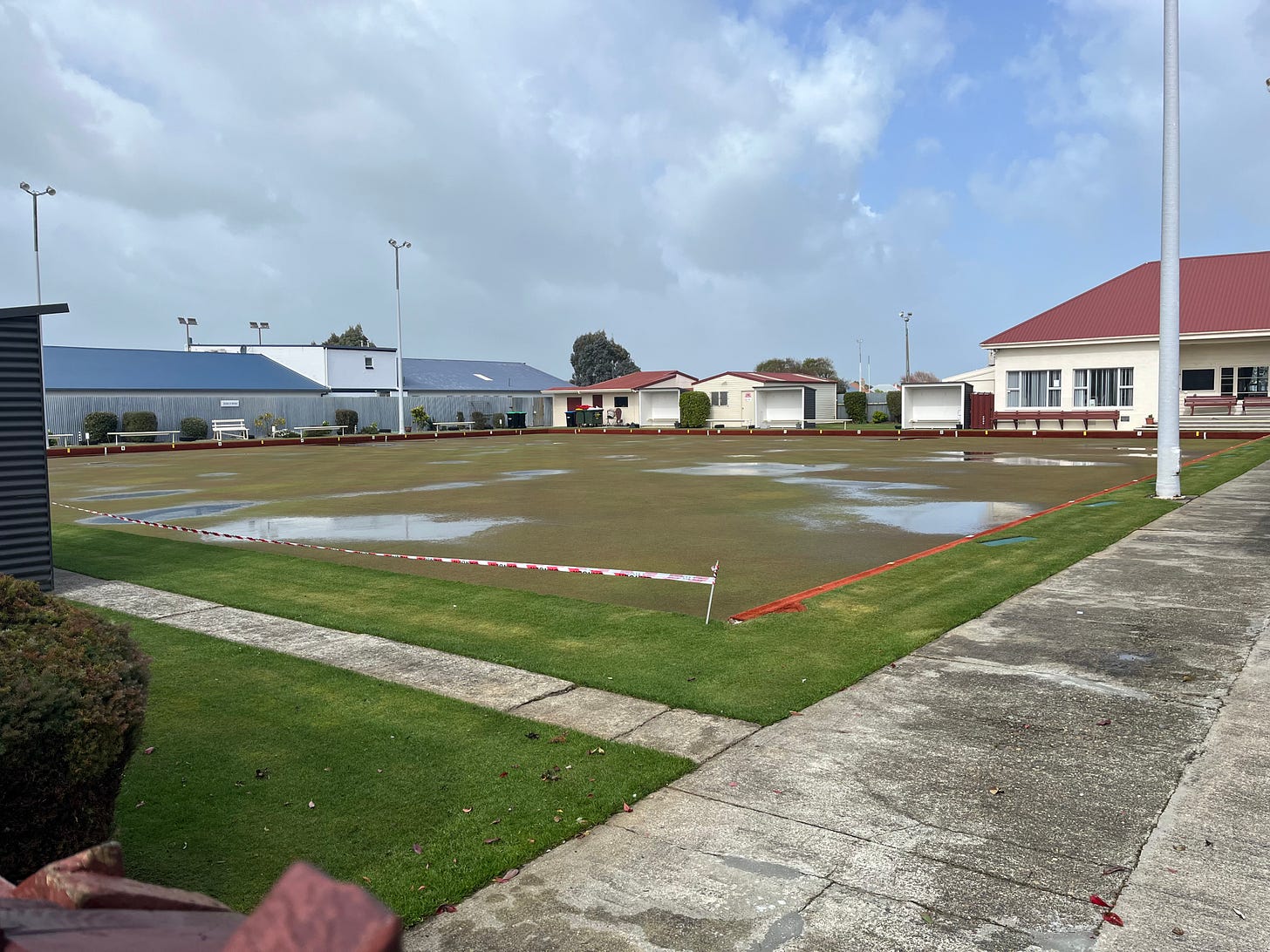The bold community hub idea that could be the future
“It will provide both creative and fiscal opportunities to support all the Waverley community residents alongside the clubs to grow and flourish. A win-win for all involved.”

Three Invercargill sports clubs are investigating a possible hub development that could revolutionize how community sporting groups work together in Southland.
The Old Boys Football Association Club, Star Rugby Club, and Waverley Bowling Club are all long-standing organisations based at Waverley Park in Invercargill.
The three have agreed to create an independent board that will look at opportunities across its Waverley Park facilities.
There is the potential to create a stand-alone Waverley Hub in the future to cater to all three clubs.
The independent board will investigate all possible opportunities.
Star Rugby Club president Andrew McHugh said he attended a ‘meet the funders’ event last year where the ‘spaces and places’ work being done in Southland was a focus.
Star had already started to look at ways to increase community use at its clubrooms at Waverley Park. It included inviting the Cowboys Rugby League Club and He Tauaa Junior Rugby League to use the venue.
From that meeting, McHugh met with Active Southland representatives which flowed onto talks between all three Waverley Park-based clubs.
That yet-to-be-selected independent board will likely look at a feasibility study around a potential Waverley Hub at Waverley Park.
Information about how people can apply for the board will be circulated soon.
Whatever happens, each club will retain its separate identities. The quest is to look to collaborate around the facilities based at Waverley Park.
Old Boys president Nic Popham said working with other clubs could set the club up well for the future.
“There are potentially a lot of efficiencies and new opportunities that an independent board will be able to identify and create that can benefit everyone involved. That means the clubs can get on with running their clubs, rather than being facility managers.”
“Our goal is to ensure the ongoing sustainability of Old Boys AFC and provide a great football experience.”

It is becoming tougher on sports clubs as costs rise and more pressure comes on facility expenses.
Waverley Bowling Club president Jane Reid said the club has been hit hard by rising insurance costs and there was an expectation that cost would continue to climb in the coming years.
If there was a way to work with other community groups to ease that burden that would be a big help for the long-standing bowling club, Reid said.
McHugh said much of his club’s meetings could now taken up trying to solve matters that did not involve rugby, which at the end of the day was what they were there for.
McHugh said the three sporting codes at Waverley Park often hit up community funders for the same types of costs. It made sense to investigate a more efficient way of operating for everyone involved.

Waverley Bowling Club member Sue Dillon said the club was proud to be involve.
“We welcome the collaboration between clubs and council. The concept of an independent board, with specialist skills, to assist us in maximizing our facilities will allow the club to concentrate more on our members,” she said.
“It will also provide both creative and fiscal opportunities to support all the Waverley community residents alongside the clubs to grow and flourish. A win-win for all involved.”
The hope is there will be strong interest from people for a place on the independent board.
They won’t need to have a link to any of the clubs, but the quest is to simply find people who want to develop their own governance skills while helping develop something unique in Invercargill.
The hub and ‘sportville’ movement
While the potential Waverley Hub would somewhat pave a new path in Southland, nationwide the hub, or ‘sportville’ concept is becoming more and more popular.
Sport NZ has played an active role in facilitating and encouraging the creation of hubs throughout the country.
They are single facilities that house multiple organisations. They have largely proved to be a successful model in New Zealand.
The key benefits are listed as combining resources, sharing costs, sharing ideas, and sharing services.
Star Rugby Club president Andrew McHugh said while there were opportunities for financial efficiencies there was a potential social upside as well.
He buys into the theory that “people attract people” and said that could potentially help the three clubs grow their respective membership base.
Having the three separate codes operating together would bring a diverse range of people and age groups together.
The Invercargill City Council and Active Southland have been involved in the early stages of the Waverley hub development.
Active Southland has acknowledged the hub concept, while new to Southland, has operated successfully elsewhere.
There can be some concerns from some at clubs that they would be lose their “assets” and autonomy by becoming part of a hub.
Although the benefits are reduced concerns for the clubs dealing with facility matters and the clubs concentrated more on its membership and the sport.
There are now ever-growing examples of ‘sportsvilles’ popping up around the country, although none south of Christchurch at this point.
The Fraser Park Sportsville in Hutt Valley is one example.
It was launched in September 2009 and the founding clubs signed the Sportsville constitution in April 2010, signalling their commitment to the partnership.
In June 2010, an independent Board was appointed to lead the organisation.
It is now home to multiple sports clubs with a modern multi-use venue that can be hired for sporting events, conferences and social functions.
Christchurch-based consultant Peter Burley has been involved in helping with the implementation of many hubs and has been involved in the early stages of the Waverley hub discussions.






